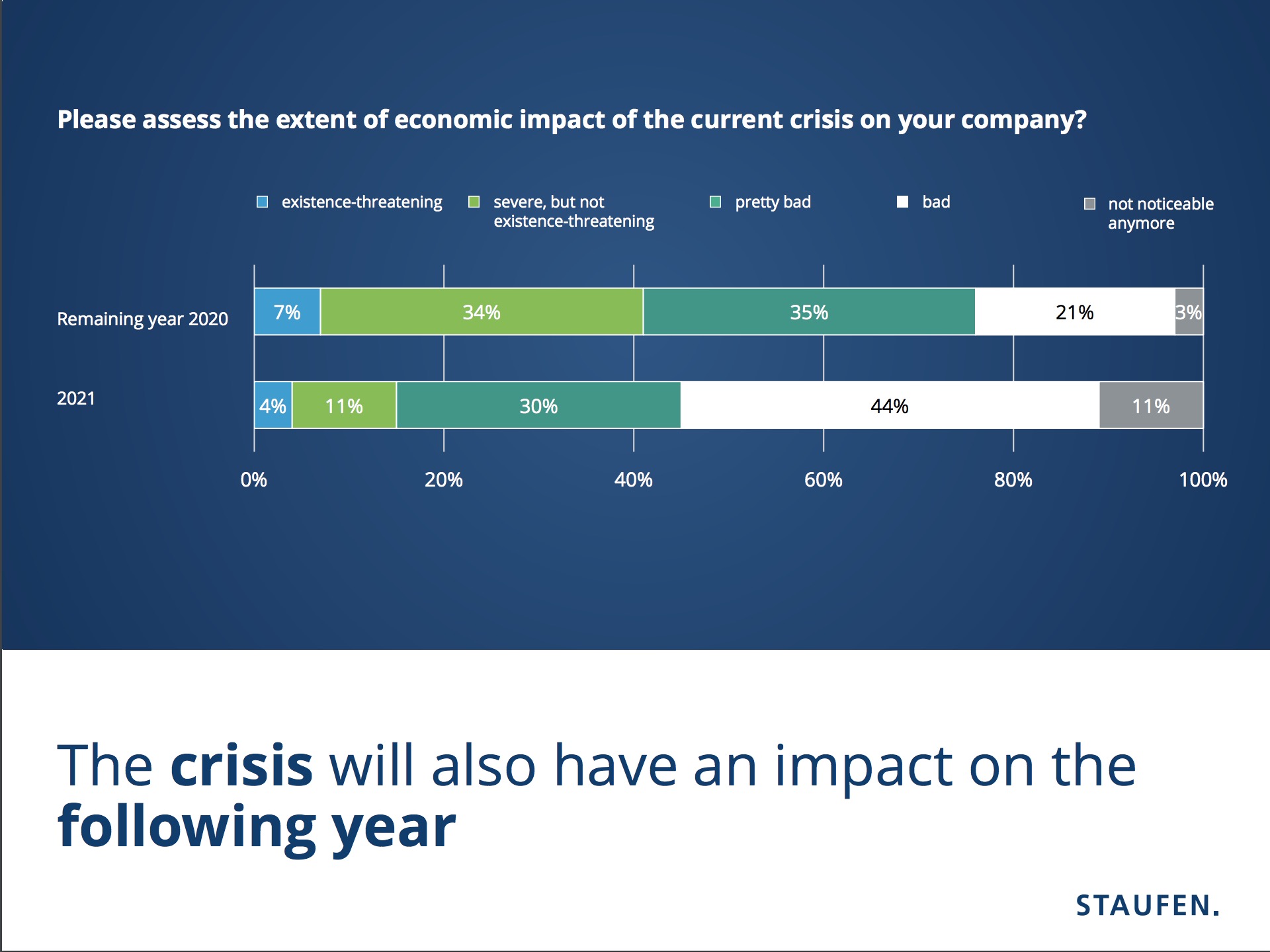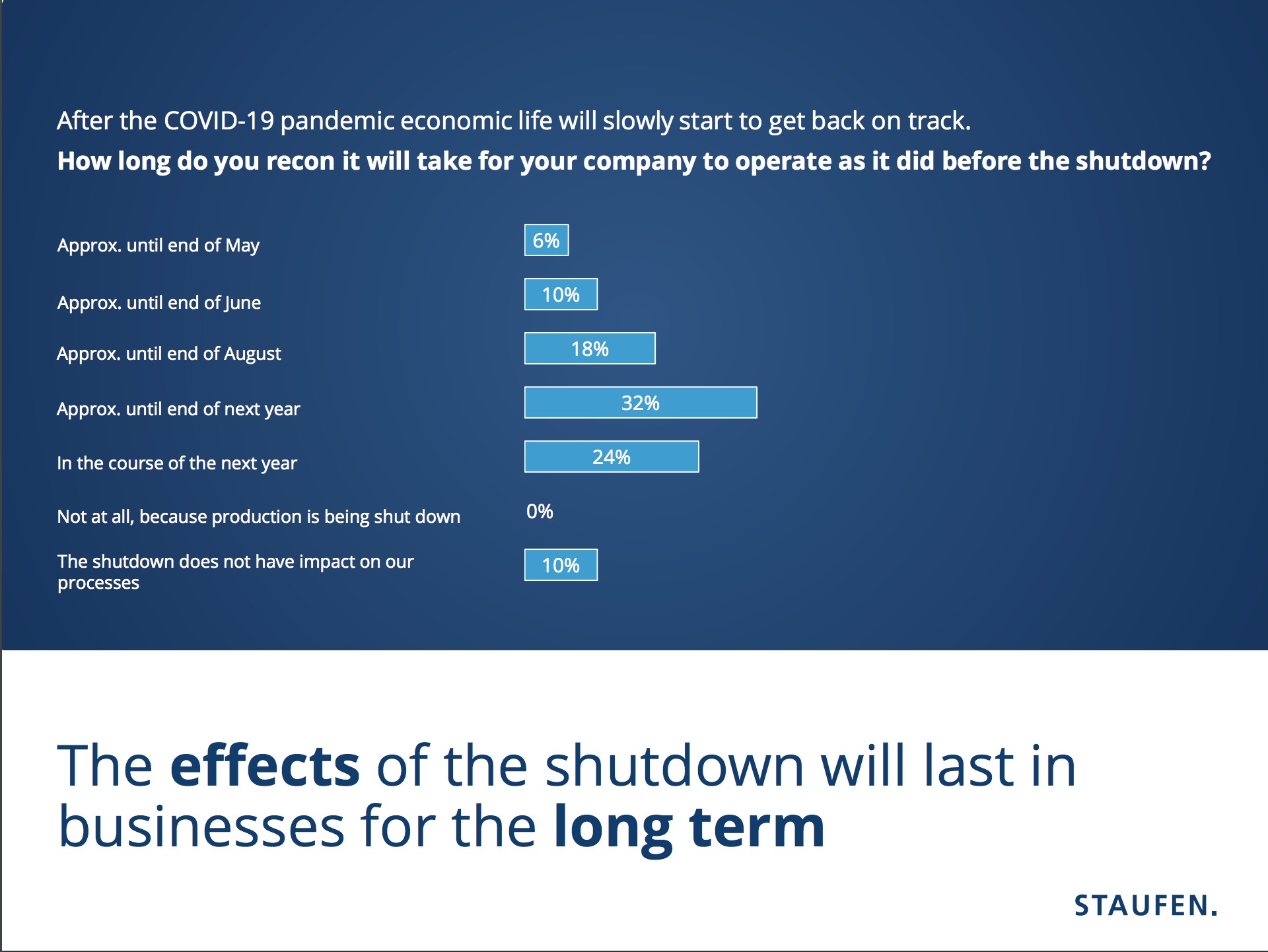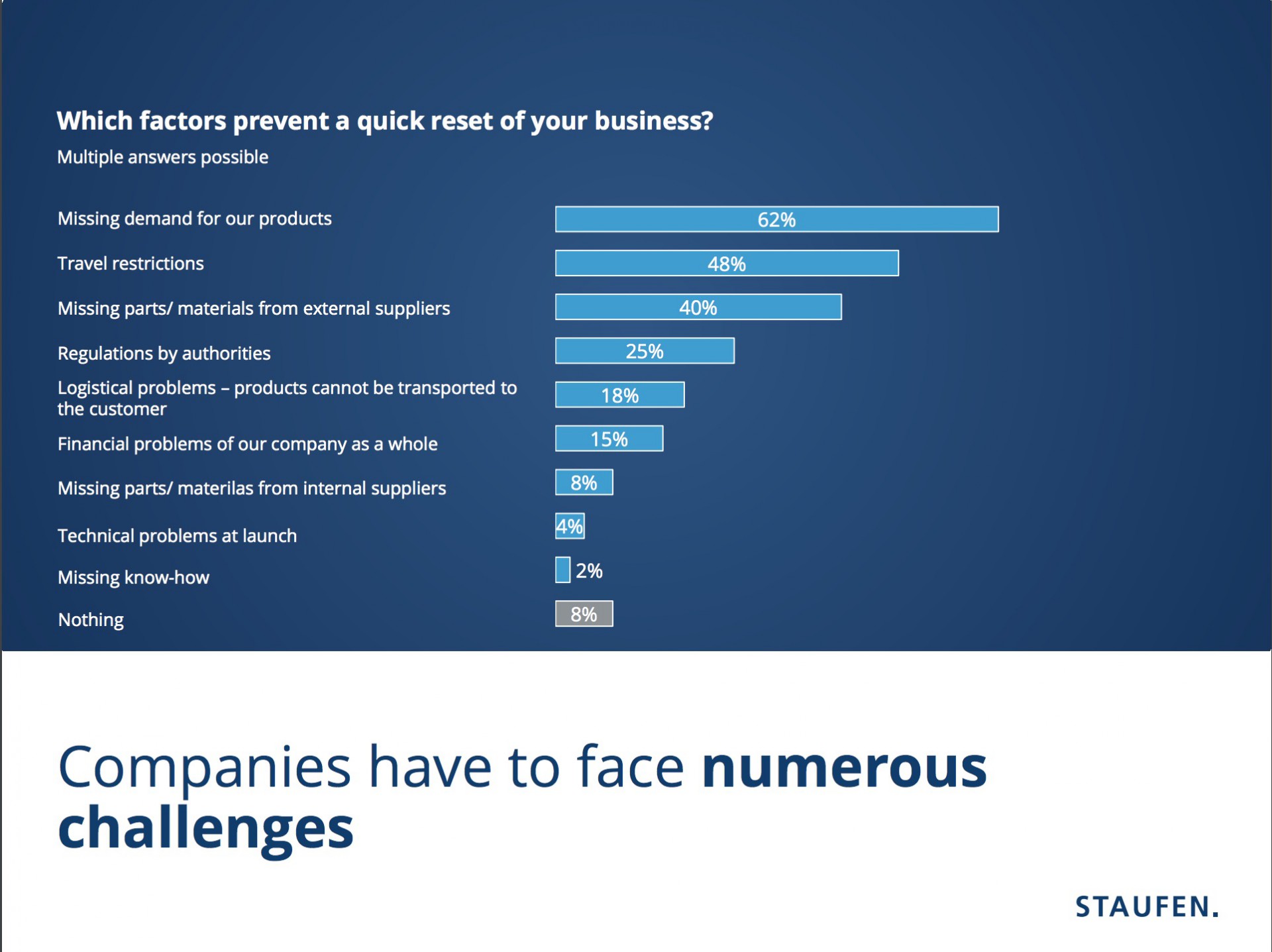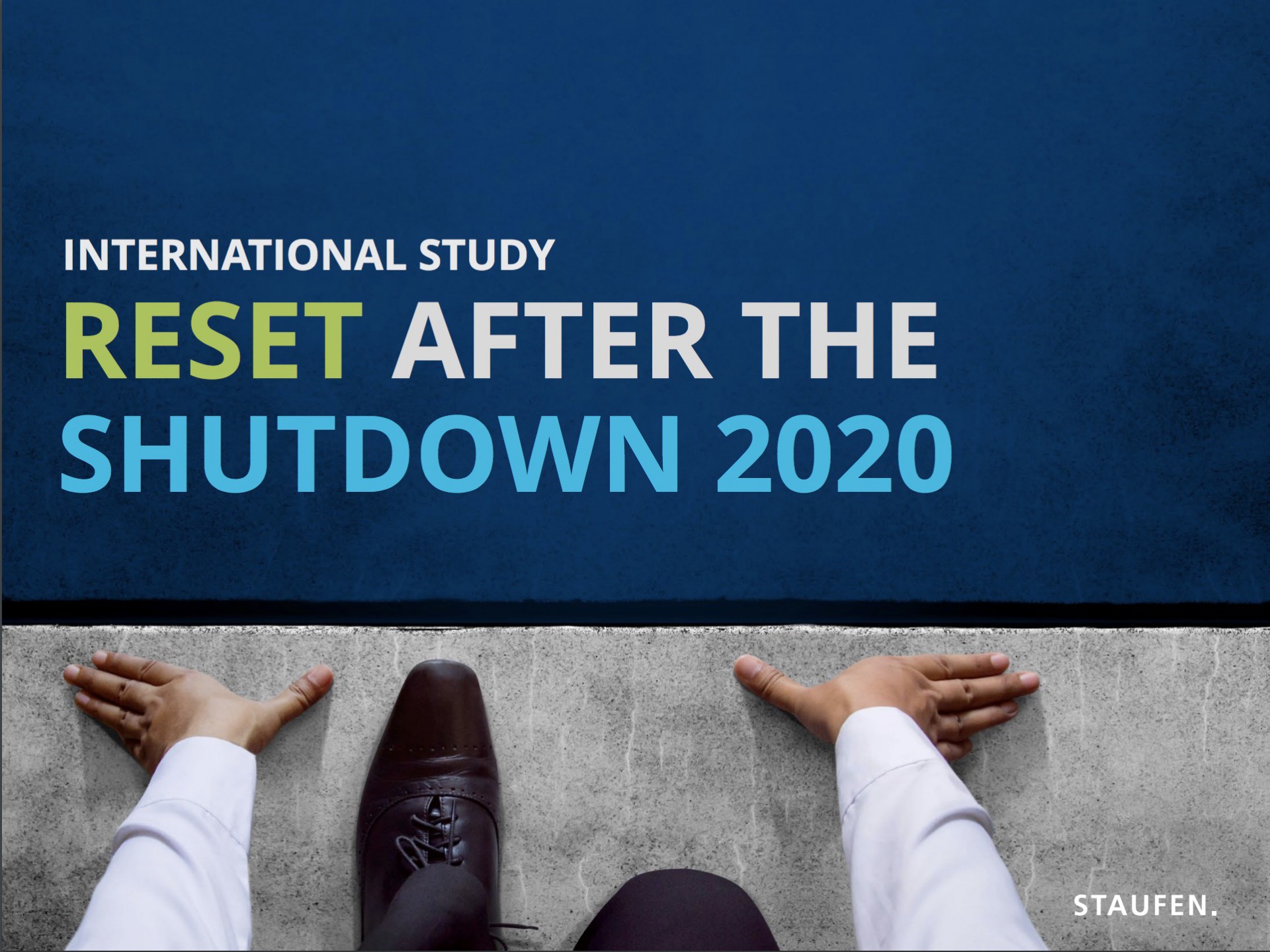International Study: Reset after the Shutdown 2020
6. May 2020- Study
- COVID-19
- Shutdown

INTERNATIONAL STUDY: MORE THAN 50 PERCENT OF COMPANIES WILL RESUME "NORMAL" WORK BY THE END OF THE YEAR AT THE EARLIEST / LACK OF DEMAND IS BURDENING THE NEW START THAT TWO OUT OF THREE COMPANIES LONG FOR
Köngen – Measures introduced around the world to contain the Covid-19 pandemic are developing into a long-term stress test for the industry. 56 percent of companies assume that they will not be able to resume work like before the shutdown until the end of the year at the earliest, or even over the course of next year. According to the current study "New start after the 2020 shutdown," however, seven percent of companies fear they will not be able to hold out that long. Management consultancy Staufen interviewed more than 730 companies in April for the study. Participants came from Germany, USA, China, Brazil, Mexico, Switzerland, Italy, Poland, Hungary, Czech Republic, Slovakia, and Romania.
"Restrictions introduced to protect people have left deep marks in the economy around the world – and we will continue to feel the consequences for a long time to come," says Wilhelm Goschy, Member of the Management Board at Staufen AG. The study, carried out simultaneously on four continents, shows the potential for a new start but also proves that the downward trend has a cross-border effect: "Even during the 2008 financial crisis, it became clear that major shocks are not just limited to individual markets. In our globalized economy with international supply chains, a crisis of this magnitude can no more be stopped by national borders than a virus," says Goschy.
Most companies assume they will most certainly feel the effects of the current crisis until the end of the year. A small minority is more optimistic: 16 percent forecast a return to previous production capacity by the end of June, and 18 percent hope for the end of August. "Some companies end up being quite resistant to crises," says Management Consultant Goschy, summarizing a core result of the study. "According to them, the shutdown has had no effect at all on the activities of one in ten companies. Another positive aspect is that no participants stated they deliberately wanted to give up production completely."
The greatest challenge companies are currently facing is defensive buyer behavior. 62 percent stated that a lack of demand was the main obstacle to rapidly restarting the company. Travel restrictions were indicated by 48 percent as the second greatest obstacle. According to Staufen Board Member Goschy, agile companies are particularly well positioned for a new start: "Companies that can smoothly adapt their production to the new demand situation now have a competitive advantage. The lesson to be learned from the corona pandemic is that despite even the best forecast models, companies must always be prepared for unforeseen external shocks to supply and customer chains. Ensuring a crisis-proof market positioning can only be successful if the entire supply chain is organized in an agile and flexible manner," concludes Goschy.





